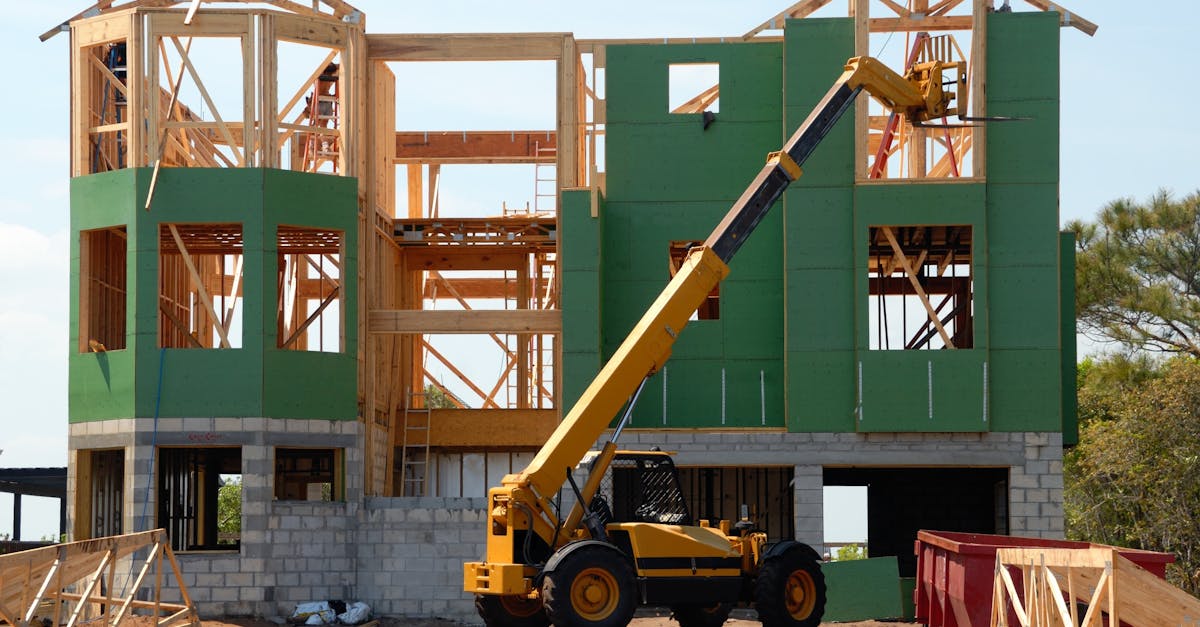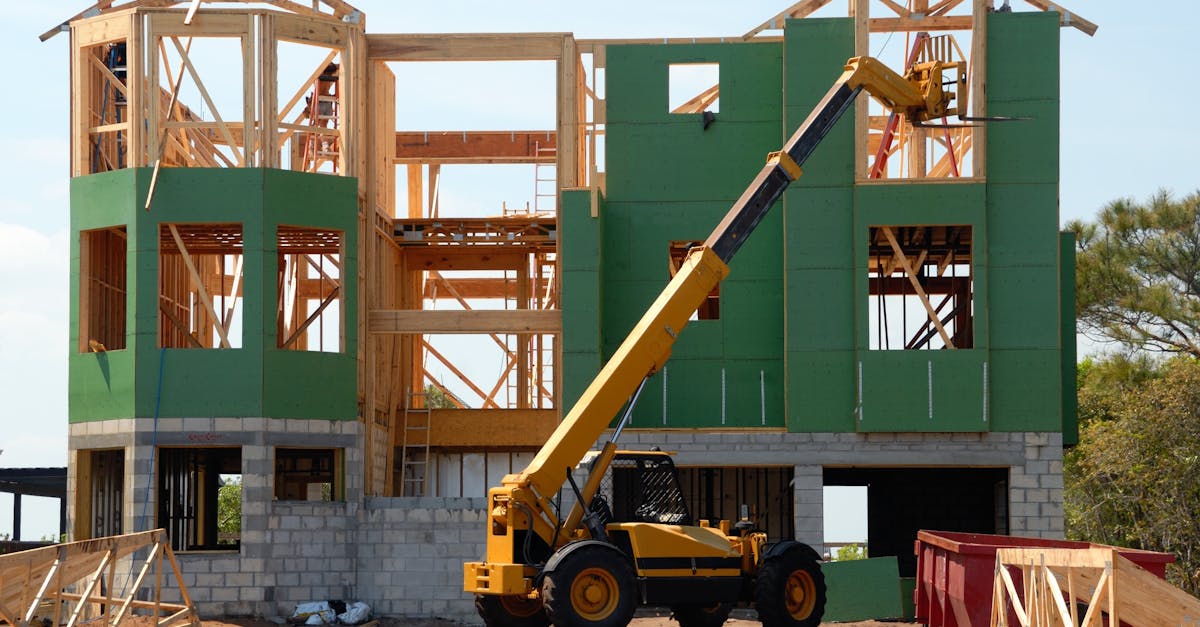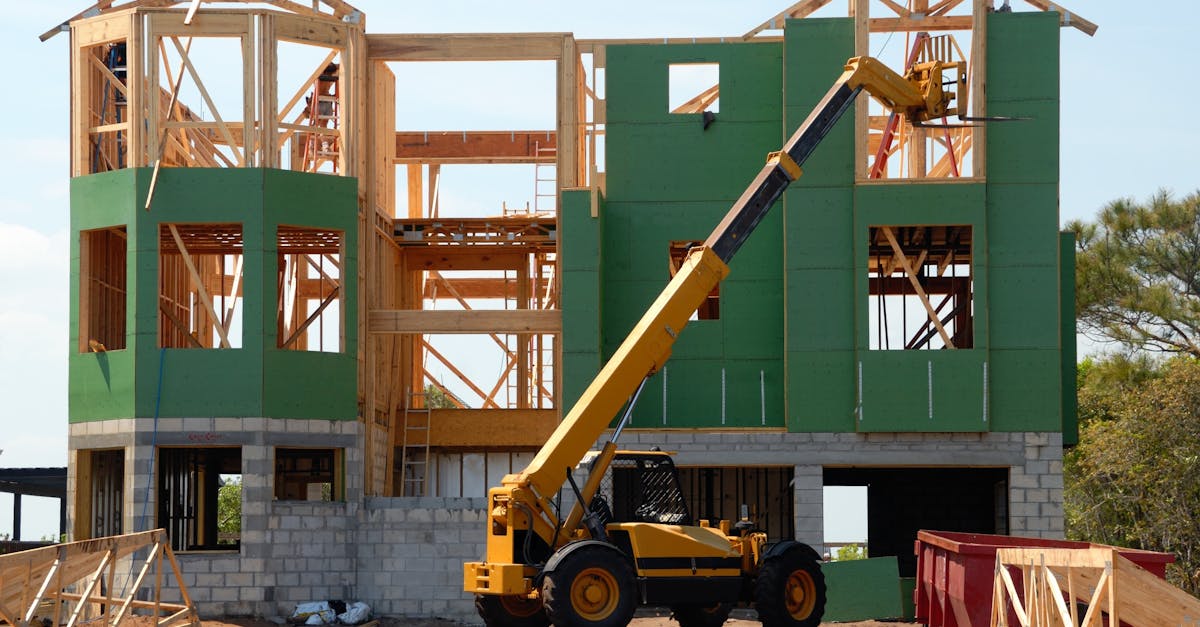
Legal Remedies for Easement Violations
In cases where easement violations occur, one significant legal remedy is injunctive relief. This type of remedy aims to prevent a party from continuing a particular action that infringes on the rights associated with the easement. Courts often consi...
Read more →
The Importance of Title Searches in Property Rights
A title search is a fundamental step for individuals looking to purchase a home. This process involves investigating the property's legal history to identify any discrepancies, claims, or liens. Homebuyers can gain peace of mind by ensuring the title...
Read more →
Prescriptive Easements: What You Need to Know
Claiming a prescriptive easement involves demonstrating that the use of another person's property has been continuous, open, and notorious. This means the usage must be evident and not hidden from the property owner. Typically, the duration of use va...
Read more →
The Impact of Zoning Laws on Property Rights
Zoning laws often come under scrutiny due to their potential to infringe on property rights. Individuals and developers may find themselves restricted by regulations that they believe limit the productive use of their land. These laws can lead to leg...
Read more →
Common Disputes Over Property Rights and Easements
Disputes over property rights can arise from various situations, such as unclear boundaries, easement issues, or disagreements among co-owners. The resolution of these conflicts often requires open communication and negotiation among the parties invo...
Read more →
The Process of Establishing an Easement
Understanding local regulations is essential when establishing an easement. Different municipalities may have unique rules and procedures governing land use and property rights. Familiarizing oneself with these guidelines can prevent potential issues...
Read more →
How to Negotiate Easements with Neighboring Property Owners
Easements can significantly affect both property value and usage, making it crucial for property owners to thoroughly evaluate how these agreements will impact their land. Consider the intended purpose of the easement, such as access for utilities or...
Read more →
Types of Easements and Their Legal Implications
Easements can be terminated through a variety of means. Some common grounds for termination include the expiration of the easement term, failure to utilize the easement, or mutual agreement between the parties involved. In cases where the easement wa...
Read more →
The Role of Easements in Property Development
Easements can significantly influence property values, often leading to fluctuations based on their nature and usage. For example, an easement that provides access to a waterfront can enhance the desirability of a property. Conversely, easements that...
Read more →
Understanding Property Rights in Real Estate Transactions
The relationship between tenants and landlords is governed by a complex interplay of rights and responsibilities. Tenants have the right to a safe and habitable living environment. This includes access to essential services like water, heating, and e...
Read more →
The Relationship Between Environmental Impact Assessments and Zoning Laws
Balancing environmental impact assessments with existing zoning laws presents numerous challenges. First, inconsistencies between local regulations and federal or state environmental policies can create confusion for stakeholders involved in developm...
Read more →
Best Practices for Preparing an Environmental Impact Assessment
Environmental impact analysis serves as a foundational element in understanding how proposed projects affect the surrounding environment. It involves a systematic examination of the potential repercussions, encompassing both biophysical and socioecon...
Read more →
The Future of Environmental Impact Assessments in Real Estate Development
Recent years have seen significant shifts in environmental policy, marked by an increasing emphasis on sustainability and climate action. Governments are introducing stricter regulations aimed at reducing carbon footprints and promoting energy effici...
Read more →
How Environmental Impact Assessments Affect Property Development
Environmental impact assessments (EIAs) play a critical role in shaping property development projects by identifying potential environmental effects before construction begins. These assessments can lead to a range of outcomes, including the modifica...
Read more →
Common Challenges in Conducting Environmental Impact Assessments
Environmental Impact Assessments (EIAs) rely heavily on the technology available for data collection and analysis. Many projects face challenges due to inadequate or outdated tools. This can result in incomplete assessments and limit the ability to a...
Read more →
Navigating State and Federal Regulations for Environmental Impact Assessments
Mitigation strategies play a crucial role in reducing the adverse effects of projects on the environment. Identifying potential impacts early in the planning process enables project managers to implement effective measures. Strategies may include hab...
Read more →
Case Studies: Environmental Impact Assessments in Action
A notable case study in environmental impact assessments occurred during the planning stages of an oil and gas exploration project in the Northern Hemisphere. The project aimed to tap into reserves while minimizing potential damage to the surrounding...
Read more →
Understanding the Importance of Environmental Impact Assessments in Real Estate
Environmental impact assessments (EIAs) typically evaluate a variety of factors that can influence ecosystems and communities. These assessments often consider the flora and fauna in the area, examining how development may disrupt habitats or contrib...
Read more →
Key Components of an Environmental Impact Assessment
Understanding potential environmental effects is fundamental to environmental impact assessments. This stage involves analyzing how proposed projects may affect ecological and human systems. Various models and simulations are employed to predict outc...
Read more →
The Role of Real Estate Lawyers in Environmental Impact Assessments
Real estate lawyers play a crucial role in ensuring that their clients effectively navigate the complexities of regulatory hearings. These legal professionals must thoroughly understand local, state, and federal regulations while remaining adept at i...
Read more →
Future Trends in Land Use and Development Law
The rise of gentrification in urban areas often leads to significant shifts in community demographics and economic landscapes. As neighborhoods undergo transformation, long-standing residents frequently face displacement due to escalating property va...
Read more →
The Importance of Comprehensive Plans in Development
A comprehensive plan serves as a vital tool for community development and is shaped by a robust legal framework that often encompasses state laws and local regulations. These plans are typically mandated by state legislation, which requires municipal...
Read more →
Case Studies in Successful Land Use Planning
Engaging the community in planning processes fosters a sense of ownership and investment among residents. When local voices are prioritized, the resulting plans are often more reflective of the community's needs and aspirations. Workshops, surveys, a...
Read more →
Legal Challenges in Land Use Planning and Development
Public participation serves as a cornerstone in the decision-making process regarding land use. It involves gathering input from community members to ensure that their voices are heard when new developments are proposed. Effective public engagement c...
Read more →
Navigating Local Zoning Codes for Development
In many instances, property owners find that strict adherence to zoning codes may hinder their development goals. Variances and exceptions serve as mechanisms to allow flexibility within these regulations. A variance permits relief from specific requ...
Read more →
The Impact of Community Input on Land Use Decisions
Community input often encounters obstacles that complicate its effective integration into land use planning. One significant challenge arises from the diverse perspectives of stakeholders, which can lead to conflicting priorities. Disparate interests...
Read more →
Strategies for Effective Land Use Planning in Urban Areas
Advancements in technology have transformed the landscape of urban planning, allowing for more precise and data-driven decision-making. Geographic Information Systems (GIS) serve as a crucial tool, enabling planners to visualize and analyze spatial d...
Read more →
Key Considerations for Sustainable Land Use Planning
Effective land use planning serves as a crucial tool for addressing the challenges posed by climate change. Urban areas that integrate natural features, such as green roofs and urban forests, can significantly enhance their resilience. These methods ...
Read more →
Understanding the Basics of Land Use Planning
Zoning serves as a foundational element in land use planning, dictating how properties can be developed and utilized within specific areas. Local governments establish zoning regulations to separate incompatible land uses, promote orderly development...
Read more →
The Role of a Real Estate Lawyer in Land Development Projects
In land development projects, understanding and addressing environmental considerations is essential for ensuring compliance and minimizing risks. Real estate lawyers play a pivotal role in navigating the web of federal, state, and local environmenta...
Read more →
Legal Challenges to Variance Decisions
In a notable case in New York, residents successfully challenged a local zoning board's decision to grant a variance for a commercial development in a residential area. The community argued that the project would negatively impact property values and...
Read more →
Best Practices for Securing Special Permits
A proactive approach to securing special permits involves a combination of technological and procedural strategies. Implementation of robust access controls is essential. Limiting who can view and modify sensitive information reduces the risk of unau...
Read more →
Impact of Variances on Property Value
Property variances can significantly alter the financial landscape for homeowners. When a variance is granted, it may allow for modifications that typically wouldn’t comply with existing zoning laws. This can increase a property's marketability and...
Read more →
Navigating Local Zoning Boards for Special Permits
Public hearings serve as a critical platform for community engagement, providing a structured environment where residents can voice their opinions on proposed projects. These meetings are typically organized by local zoning boards, allowing stakehold...
Read more →
Case Studies of Successful Variance Applications
The impact of development on the environment often raises concerns among community members and stakeholders. Variance applications typically include an evaluation of how proposed projects could affect local ecosystems, water quality, and air pollutio...
Read more →
Special Permits vs. Variances: Key Differences
When evaluating applications for special permits, local authorities typically consider the unique characteristics of the proposed use in relation to the surrounding area. These factors may include the compatibility of the project with existing land u...
Read more →
The Role of a Real Estate Lawyer in Variance Applications
When pursuing a variance application, it is common to encounter objections from neighbors or community members. Listening to these concerns is essential as it demonstrates a willingness to engage with the community. Lawyers can help clients prepare r...
Read more →
Common Mistakes When Applying for Variances
Clear communication of project goals is essential when applying for variances. Applicants often make the mistake of presenting overly ambitious or vague objectives that do not align with the actual proposal. This can lead to confusion among decision-...
Read more →
The Process of Obtaining a Special Permit
Obtaining a special permit often requires the payment of various fees, which can vary significantly depending on the type of permit and the jurisdiction. Application fees are typically charged at the outset. Additional costs may arise from required i...
Read more →
Understanding Variances in Zoning Laws
When evaluating requests for zoning variances, several key factors come into play. The applicant's ability to demonstrate a unique hardship or practical difficulty is essential. Local zoning boards assess whether denying the variance would create an ...
Read more →
The Future of Zoning Laws in Urban Development
Active participation from community members is crucial in shaping zoning laws that effectively reflect the needs and desires of local residents. Engaging citizens ensures their voices are heard in the decision-making process, fostering a sense of own...
Read more →
Key Differences Between Residential and Commercial Zoning
Zoning laws serve as essential guidelines that dictate how land can be used within specific jurisdictions. These regulations are designed to promote orderly development and prevent conflicts between different land uses. By classifying land into resid...
Read more →
Zoning Compliance and its Impact on Property Value
Zoning changes can significantly alter the landscape of a community, impacting the value and usability of existing properties. When regulations shift, property owners may find their land subject to new limitations or opportunities. For example, a cha...
Read more →
Common Zoning Challenges Faced by Property Owners
Zoning boards play a crucial role in the management and oversight of land use within communities. These boards are responsible for interpreting and enforcing zoning regulations, which dictate how properties can be developed and utilized. They provide...
Read more →
The Process for Applying for Zoning Changes
Zoning change applications typically begin with a comprehensive submission that includes detailed information about the proposed modification. This documentation often necessitates site plans, environmental assessments, and justification for the requ...
Read more →
The Role of Zoning Boards in Real Estate Transactions
Public hearings serve as a crucial platform for citizens to voice their opinions and concerns regarding proposed developments. These gatherings typically follow a prescribed legal notice period, allowing ample time for community members to prepare th...
Read more →
Navigating Local Zoning Ordinances
Local zoning decisions significantly shape the character and development of communities. Residents play a crucial role in influencing these regulations. Public input ensures that local needs and aspirations are taken into account. Engaging with neigh...
Read more →
How Zoning Laws Affect Property Development
Zoning laws play a crucial role in shaping the environmental landscape of communities. These regulations often dictate how land can be utilized, ensuring that development projects consider potential impacts on local ecosystems. By setting specific gu...
Read more →
The Importance of Zoning Regulations in Real Estate
Zoning regulations play a pivotal role in safeguarding environmental resources and promoting responsible land use. They establish guidelines that dictate how land can be utilized, ensuring that sensitive ecosystems, wildlife habitats, and natural lan...
Read more →
The Importance of Title Searches in Real Estate Transactions
Title insurance is a vital aspect of real estate transactions, serving to protect property buyers and lenders from potential financial losses arising from title defects. This type of insurance offers coverage against issues such as unpaid liens, clai...
Read more →
Understanding the Basics of Zoning Laws
Zoning laws serve as a framework governing how land can be used within specific areas. They dictate activities permitted on properties, influencing residential, commercial, industrial, and agricultural development. These regulations help ensure that ...
Read more →
Preventing Title Disputes Before They Happen
Open lines of communication can significantly reduce misunderstandings between neighbors. Regularly engaging in casual conversations fosters a sense of community and awareness. When neighbors get to know each other, they are more likely to discuss po...
Read more →
Steps to Take When Facing a Title Dispute
Before attending a court hearing, it is crucial to organize all relevant documentation. This includes gathering copies of deeds, title searches, and any communications related to the dispute. Keeping these records clearly labeled will help ensure a s...
Read more →
Legal Procedures for Title Dispute Resolution
Mediation provides an informal approach to resolving title disputes outside of the courtroom. In this process, a neutral third party facilitates communication between the disputing parties, encouraging them to explore options and negotiate terms that...
Read more →
Navigating Quiet Title Actions
The duration of a quiet title action can vary based on several factors. The complexity of the case, the number of parties involved, and the jurisdiction all play significant roles in shaping the timeline. Generally, the process may take anywhere from...
Read more →
The Impact of Liens on Property Titles
Unpaid liens can have severe repercussions for property owners. They can lead to legal actions initiated by lien holders, which may ultimately result in the forced sale of the property to satisfy the debt. Beyond the immediate financial strain, homeo...
Read more →
The Role of a Real Estate Lawyer in Title Issues
Liens can significantly affect property titles by creating claims against the property. These claims may arise from unpaid debts, such as mortgages, property taxes, or contractor fees. When a lien is placed on a property, it serves as a legal encumbr...
Read more →
How to Resolve Title Claims Effectively
To resolve title claims, it is crucial to gather all relevant documentation that supports the ownership and validity of the title involved. This includes original title deeds, property surveys, and past ownership records. Any outstanding liens or enc...
Read more →
Common Causes of Title Disputes
Title disputes often arise from fraudulent claims made by individuals asserting ownership of a property without legitimate evidence. These claims can stem from motivations such as financial gain or revenge. Often, the parties involved attempt to leve...
Read more →
Understanding Title Insurance and Its Importance
When purchasing a property, understanding the cost associated with title insurance is crucial. Typically, premiums are one-time fees paid at closing, and they vary significantly based on the property’s purchase price and location. Most title insura...
Read more →
Understanding Mortgage Fraud and Its Consequences
Mortgage fraud can have severe repercussions for the overall housing market. When fraudulent activities such as falsifying income, misrepresenting property values, or using fraudulent identities occur, they undermine trust among consumers, lenders, a...
Read more →
How to Challenge a Foreclosure Action
Homeowners facing foreclosure may consider loan modification as a viable option to retain their property. A loan modification involves negotiating changes to the original loan terms, typically aimed at reducing the monthly payment or extending the lo...
Read more →
The Role of a Real Estate Lawyer in Foreclosure Cases
Homeowners facing foreclosure have several avenues to challenge the lender's action. Engaging a real estate lawyer can be crucial in assessing the validity of the foreclosure. A lawyer may investigate whether the lender followed proper legal procedur...
Read more →
What to Expect During a Foreclosure Auction
Understanding the local real estate market is essential for anyone looking to participate in a foreclosure auction. Researching property values, neighborhood trends, and historical data can provide insights into the potential worth of the property. S...
Read more →
Foreclosure Alternatives: Short Sales and Deeds in Lieu
Many homeowners facing financial difficulties find a deed in lieu to be an appealing alternative to foreclosure. One significant benefit is the speed of the process, which typically takes less time than completing a lengthy foreclosure. Homeowners ca...
Read more →
How to Navigate Mortgage Modification Options
Understanding the timeline for mortgage modification is crucial for homeowners facing financial difficulties. The process typically begins with submitting a formal application to the lender, which may require documentation of income, expenses, and fi...
Read more →
Understanding the Foreclosure Process
In the foreclosure process, lenders play a pivotal role in determining the outcome for borrowers who default on their mortgages. When homeowners fail to make timely payments, lenders are obligated to follow specific procedures to recover the outstand...
Read more →
Legal Rights of Homeowners in Foreclosure
Homeowners facing foreclosure must gather several essential documents to navigate the complex legal process. These documents typically include the mortgage agreement, promissory note, and any correspondence with the lender regarding missed payments. ...
Read more →
The Impact of Foreclosure on Your Credit Score
A foreclosure can have severe implications for your credit score, yet taking immediate action can reduce the overall impact. First, it is essential to continue paying any remaining debts, such as personal loans or credit card balances. This demonstra...
Read more →
Common Defenses Against Foreclosure
Homeowners facing foreclosure often analyze the legal documents associated with their mortgage. One key area of focus is whether the lender possesses the proper standing to initiate foreclosure proceedings. This involves confirming that the lender ha...
Read more →
The Impact of Eviction on Tenant's Rental History
An eviction can have significant repercussions on an individual's credit score. While evictions themselves may not directly affect credit reports, the financial distress that often accompanies them can lead to late payments, debt collections, or bank...
Read more →
Navigating Lease Agreements and Eviction Risks
Failure to pay rent consistently remains one of the most prevalent causes for eviction. Landlords depend on timely payments to maintain their properties and cover expenses. When tenants fall behind, it not only creates financial strain for landlords ...
Read more →
Eviction Notices: What Tenants Need to Know
Understanding the timeline of eviction processes can help tenants navigate their rights and responsibilities. The eviction may begin when a landlord files a complaint, initiating the legal proceedings. Tenants typically have a set number of days to r...
Read more →
Steps Tenants Can Take to Prevent Eviction
Mediation services can serve as a vital resource for tenants facing potential eviction. These services offer a way to facilitate communication between tenants and landlords, helping both parties explore viable solutions without resorting to legal act...
Read more →
How to Challenge an Unlawful Eviction
Understanding the eviction notice and its contents is essential before entering a courtroom. Review any lease agreements and prior correspondence with your landlord. Gather necessary documents, including your lease, rent payment history, and any noti...
Read more →
The Role of a Real Estate Lawyer in Eviction Cases
Landlords facing eviction can often benefit from exploring negotiation and settlement options with their tenants. Open communication may help reach a mutually agreeable resolution that avoids the time and expense of legal proceedings. Proposing a pay...
Read more →
Legal Protections for Tenants Facing Eviction
Across many urban areas, rent control plays a significant role in shaping the relationship between tenants and landlords. By capping rent increases, these regulations aim to provide stability for renters in markets where housing costs can escalate ra...
Read more →
Tenant Rights During Eviction Proceedings
Local housing authorities serve a crucial function in maintaining fair housing practices and protecting tenant rights during eviction proceedings. They typically oversee rental assistance programs and enforcement of housing codes. In many cases, thes...
Read more →
Common Reasons for Tenant Eviction
When a lease reaches its agreed-upon end date, landlords typically have the right to reclaim possession of the property. Tenants are expected to vacate the premises unless a renewal or extension has been negotiated. In some cases, landlords may choos...
Read more →
Preventing Boundary Disputes Through Clear Agreements
Mediation serves as a valuable tool in resolving boundary disputes before they escalate into legal battles. It provides a neutral platform for parties involved to express their concerns and interests. Trained mediators facilitate these discussions, h...
Read more →
Understanding Eviction Process for Tenants
The court serves as a neutral platform where disputes between landlords and tenants are resolved. When an eviction case is brought before it, the judge reviews the evidence presented by both parties. The court's role is to ensure that the legal proce...
Read more →
Navigating Zoning Laws in Boundary Disputes
Disputes over zoning regulations often arise due to misunderstandings or conflicts between property owners and local authorities. Engaging in transparent communication with zoning boards or local planning departments is a critical first step. This in...
Read more →
How to Prepare for a Boundary Dispute Resolution
Gathering relevant documents is crucial in preparation for an appraisal. This includes property deeds, past surveys, and any existing agreements with neighbors. Collecting photographs of the property can also provide helpful context. Having these mat...
Read more →
Case Studies of Successful Boundary Dispute Resolutions
Navigating boundary disputes often requires a combination of thorough research and strategic legal approaches. Engaging a competent attorney who specializes in property law can greatly enhance the chances of a favorable outcome. Such legal experts ca...
Read more →
The Impact of Fences on Boundary Disputes
Boundary disputes often escalate tensions between neighbors, leading to prolonged conflicts. Mediation provides a structured environment where both parties can express their grievances and work toward a mutually acceptable resolution. This approach a...
Read more →
The Role of Surveyors in Boundary Disputes
When facing boundary disputes, surveyors begin by conducting thorough research into property records. They gather deeds, historical surveys, and other documentation related to the properties in question. This foundational work helps establish the leg...
Read more →
Mediation as a Solution for Boundary Disputes
Effective preparation is crucial for a successful mediation session. Each party should gather all relevant documents, such as property deeds, surveys, and photographs. Understanding the specifics of the boundary issue helps clarify the points of cont...
Read more →
Legal Framework for Resolving Boundary Disputes
Boundary disputes often necessitate court intervention, especially when negotiations fail. Litigation can serve as a decisive method for resolving such conflicts. This process allows the legal system to evaluate the evidence presented by both parties...
Read more →
Common Causes of Boundary Disputes
Natural changes in landscape can significantly impact property lines and lead to disputes between neighboring landowners. Weather events such as heavy rainfall and flooding can cause soil erosion, which gradually shifts the boundaries recognized by p...
Read more →
Preventing Property Disputes Through Clear Contracts
Effective negotiation of contract terms lays the groundwork for a successful property agreement. Both parties should approach discussions with transparency and an understanding of each other's needs. Clear communication fosters trust and facilitates ...
Read more →
Understanding Boundary Disputes in Real Estate
Surveyors play a critical role in resolving boundary disputes by providing expert assessments of property lines. Their expertise in land measurements and geographical analysis offers clarity regarding conflicting claims. By utilizing tools such as GP...
Read more →
Legal Remedies for Different Types of Property Disputes
Inheritance property disputes often arise when multiple heirs have conflicting interpretations of a deceased relative's will or trust. These disputes can become contentious, particularly if the intentions of the deceased are unclear or poorly documen...
Read more →
Mediation vs Litigation in Property Disputes
In property disputes, the timeline can significantly affect the experience and outcomes for all parties involved. Mediation typically offers a quicker resolution compared to traditional litigation. Parties can often schedule mediation sessions within...
Read more →
The Impact of Property Disputes on Real Estate Transactions
Title insurance serves as a vital safeguard for both buyers and lenders in real estate transactions. It provides protection against losses resulting from defects in the title, such as liens or undisclosed heirs, which may not be uncovered during a st...
Read more →
Navigating Easement Disputes in Real Estate
In easement disputes, legal expertise is crucial for both property owners and developers. Attorneys play a vital role in interpreting easement agreements, guiding their clients through complex legal language, and ensuring that their rights are protec...
Read more →
How Zoning Laws Affect Property Disputes
Zoning laws play a pivotal role in shaping property values within a given area. They dictate land use, determining whether a property can be developed for residential, commercial, or industrial purposes. Properties located in zones designated for hig...
Read more →
The Role of Real Estate Lawyers in Property Disputes
Title issues often arise when there are discrepancies in property records or conflicting claims of ownership. These conflicts can create significant obstacles for buyers, sellers, and lenders. A thorough title examination is essential to establish cl...
Read more →
Distinguishing Between Commercial and Residential Property Disputes
Property management often plays a crucial role in resolving disputes related to both residential and commercial properties. Managers serve as intermediaries between landlords and tenants, addressing grievances and facilitating communication. Their un...
Read more →
Understanding Different Types of Property Disputes
Adverse possession claims arise when an individual occupies land owned by someone else without permission. Over time, this long-term occupancy can lead to the individual gaining legal rights to the property. The concept is rooted in the notion that l...
Read more →
Common Causes of Property Disputes Among Neighbors
Disagreements over property lines often arise due to unclear boundaries or lack of documentation. Homeowners may perceive encroachments where none exist, leading to tension fueled by assumptions or misunderstandings. Additionally, changes in landscap...
Read more →
Legal Implications of Errors in Closing Documentation
Errors in closing documentation can lead to significant complications for all parties involved in a real estate transaction. Correcting these mistakes often involves a systematic approach. First, identifying the nature of the error is crucial. Whethe...
Read more →
Tips for Smoothly Navigating the Closing Process
A final walk-through serves as an essential step before closing on your new home. This is an opportunity to ensure that the property is in the agreed-upon condition and that any necessary repairs have been completed. It typically takes place a day or...
Read more →
The Difference Between Closing Costs and Closing Fees
When it comes to real estate transactions, the responsibility for closing fees can vary depending on several factors. Typically, the buyer is responsible for paying the majority of these fees, which can include lender fees, title insurance, and appra...
Read more →
What to Expect During a Real Estate Closing Meeting
The final walkthrough serves as an essential step before the closing meeting. It allows buyers to inspect the property one last time to ensure that everything is as agreed upon in the purchase contract. This inspection typically occurs a day or two b...
Read more →
The Importance of Reviewing Closing Documents Carefully
Title insurance is a crucial aspect of real estate transactions that provides protection against potential losses stemming from defects in the title. This type of insurance ensures that the buyer holds clear ownership of the property, safeguarding ag...
Read more →
How to Prepare for Closing Day in a Real Estate Deal
Having a solid financial foundation is essential before you finalize your real estate purchase. Begin by getting pre-approved for a mortgage. This process involves submitting your financial documents to a lender who will evaluate your creditworthines...
Read more →
Common Issues That Arise During the Closing Process
Understanding the various expenses associated with closing a real estate transaction is crucial for buyers and sellers alike. These costs can include an array of fees such as loan origination, title insurance, appraisal charges, and attorney fees. In...
Read more →
The Role of a Real Estate Lawyer in the Closing Process
A real estate lawyer plays a crucial role in coordinating various parties during the closing process. They serve as a central point of contact, bringing together buyers, sellers, and their respective agents. Clear communication is essential in ensuri...
Read more →
Essential Documents Required for Closing on a Property
An appraisal report is a critical document in the property closing process. It provides an independent evaluation of the property's value, helping lenders assess how much they are willing to finance. This report is typically conducted by a licensed a...
Read more →
Understanding the Closing Process in Real Estate Transactions
The Closing Disclosure is a vital document in real estate transactions, detailing the financial aspects of the sale. This form provides buyers and sellers with a clear breakdown of the loan terms, monthly payments, and the closing costs associated wi...
Read more →
The Impact of Title Issues on Real Estate Transactions
When title issues arise, property owners often seek legal remedies to resolve them. Common solutions include filing a quiet title lawsuit, which aims to establish ownership rights against conflicting claims. This judicial process can clarify legal in...
Read more →
How to Resolve Title Disputes Before Closing
In the event of a title dispute, several legal avenues can be pursued to work toward a resolution. One option is to examine the chain of title for any irregularities or clouds that may have arisen from previous transactions. Gathering evidence like d...
Read more →
The Process of Obtaining Title Insurance
Finalizing the purchase of a property involves a series of critical steps in the closing process. This is when all necessary documents are signed, and financial transactions occur. The role of title insurance becomes crucial during this phase. It pro...
Read more →
Differences Between Owner’s Title Insurance and Lender’s Title Insurance
Owner’s title insurance primarily protects the interests of the property owner. This insurance provides coverage against claims related to defects in the title, such as undisclosed heirs, fraud, or issues arising from previous ownership. The policy...
Read more →
What to Do If a Title Search Reveals Liens
Liens can significantly affect the appeal of a property during the purchasing process. Buyers often face challenges when liens are attached to a property, as these legal claims can complicate or even halt a real estate transaction. In many cases, a l...
Read more →
Types of Title Insurance Policies Explained
These policies offer a greater level of protection than standard options. They typically address issues like forgeries, fraud, and identity theft, which can pose significant risks to property ownership. Enhanced title insurance also covers more poten...
Read more →
The Role of a Real Estate Lawyer in Title Searches
Understanding and adhering to state laws is fundamental for any real estate transaction. Each state has its own set of regulations governing property transfers, including specific requirements for titles. A real estate lawyer possesses the expertise ...
Read more →
Common Issues Found During Title Searches
Property ownership often comes with disputes regarding the exact location of boundaries. These boundary issues can arise from unclear descriptions in the title deed, outdated surveys, or adjacent properties encroaching on the land. In some cases, fen...
Read more →
How Title Insurance Protects Homebuyers and Sellers
Navigating the title insurance process involves several essential steps that ensure both homebuyers and sellers are protected from potential legal issues related to property ownership. The initial phase typically begins with a title search, which inv...
Read more →
Understanding the Importance of Title Searches in Real Estate Transactions
A title search is a crucial step in ensuring that the property you desire has a clear title. Begin by gathering information about the property, including current and past owners. Visit the local county recorder’s office or land registry where prope...
Read more →
The Impact of Interest Rates on Real Estate Financing
Interest rates are closely tied to various economic indicators, such as inflation rates, unemployment figures, and GDP growth. When inflation rises, central banks often respond by increasing interest rates to control spending and stabilize prices. Th...
Read more →
Understanding the Mortgage Application Process with a Lawyer
When applying for a mortgage, borrowers receive a loan estimate that outlines key details about the loan. This includes the interest rate, monthly payment, and estimated closing costs, among other crucial information. Analyzing this document carefull...
Read more →
How to Refinance Your Mortgage: A Legal Perspective
A credit score is a critical factor in the mortgage refinancing process, influencing not only the interest rates offered but also the overall eligibility for various loan options. Lenders view a higher credit score as an indicator of a responsible bo...
Read more →
Legal Implications of Defaulting on a Mortgage
Homeowners facing default on their mortgage have several options to consider in order to address their financial difficulties. One of the most common routes includes negotiating with the lender for forbearance, which allows temporary relief from paym...
Read more →
The Importance of Pre-Approval in Real Estate Transactions
A buyer’s financial profile comes into clear focus during the pre-approval process. Lenders assess credit scores, debt-to-income ratios, and employment history. This thorough evaluation helps determine the type of loan a buyer qualifies for, along ...
Read more →
Navigating the Closing Costs in Mortgage Financing
When purchasing a home, prospective buyers often face a range of closing costs that can significantly impact their overall budget. These costs typically include lender fees, title insurance, appraisal fees, and escrow costs among others. Understandin...
Read more →
How to Choose the Right Mortgage for Your Property
A mortgage is a loan specifically used to purchase real estate, where the property itself serves as collateral. Understanding the various terms associated with mortgages is essential for making informed financial decisions. Key concepts include princ...
Read more →
Common Legal Issues in Real Estate Financing
Real estate appraisals play a crucial role in the financing process. They determine the market value of a property, which impacts loan amounts and interest rates. Discrepancies can arise between the appraised value and the seller's expectations, lead...
Read more →
The Role of a Real Estate Lawyer in Mortgage Financing
A title search is a crucial step in the mortgage financing process. It involves reviewing public records to verify the ownership of the property and to identify any claims, liens, or encumbrances that may impact the transaction. A thorough examinatio...
Read more →
Understanding Different Types of Mortgages for Homebuyers
A jumbo mortgage is a type of loan that exceeds the conforming loan limits set by the Federal Housing Finance Agency. These limits vary by location, so in high-cost areas, the threshold can be significantly higher. Borrowers typically seek jumbo loan...
Read more →
Closing the Deal: Essential Steps in Commercial Property Transactions
Engaging in the negotiation of a purchase agreement is a critical phase in any commercial property transaction. Both parties must clearly outline their expectations and desired outcomes from the beginning. The negotiations should cover essential term...
Read more →
Financing Options for Commercial Real Estate Purchases
In the realm of commercial real estate, seller financing serves as a compelling alternative to traditional mortgage routes. This arrangement enables the seller to take on the role of the lender, allowing the buyer to make payments directly to them ov...
Read more →
The Impact of Environmental Regulations on Commercial Properties
Navigating a landscape filled with ever-evolving environmental regulations can create significant challenges for property owners. Compliance often requires substantial investments in upgrades or retrofits, leading to increased operational costs. Many...
Read more →
How to Handle Disputes in Commercial Real Estate Transactions
In commercial real estate transactions, having experienced legal representation is crucial. An attorney with specialized knowledge ensures that all aspects of the deal are thoroughly reviewed. They can identify potential legal pitfalls and advise on ...
Read more →
Drafting and Negotiating Commercial Lease Agreements
Commercial lease agreements often include provisions for rent increases that can impact tenants financially over time. Landlords typically incorporate escalation clauses to adjust rent based on various factors such as inflation, property taxes, or ch...
Read more →
Common Legal Issues in Buying and Selling Commercial Real Estate
Lease agreements form the foundation of the landlord-tenant relationship in commercial real estate. These contracts outline the terms and conditions under which the tenant occupies the property, including rent payments, maintenance responsibilities, ...
Read more →
Navigating Zoning Laws and Regulations for Commercial Properties
Zoning laws play a pivotal role in shaping the landscape of commercial development. These regulations dictate how land can be utilized, influencing the types of businesses that can operate in specific areas. By establishing designated zones for comme...
Read more →
Key Considerations for Leasing Commercial Real Estate
When leasing commercial real estate, it is essential to grasp the various expenses associated with the property. Beyond monthly rent, tenants should be aware of operating expenses, maintenance costs, property taxes, and utilities. These costs can sig...
Read more →
The Importance of Due Diligence in Commercial Property Transactions
In commercial property transactions, professionals play a critical role in the due diligence process. Real estate agents, attorneys, and financial analysts contribute their expertise to ensure that all aspects of a property are thoroughly evaluated. ...
Read more →
Understanding the Role of a Real Estate Lawyer in Commercial Transactions
In commercial real estate, disputes can arise due to various issues such as breach of contract, property boundaries, or zoning regulations. Real estate lawyers play a critical role in representing clients during these conflicts. They analyze the spec...
Read more →
Tips for First-Time Homebuyers Working with a Real Estate Lawyer
Understanding the intricacies of a purchase agreement is essential for any first-time homebuyer. These documents outline the terms of the sale and often include critical information regarding the property's condition, financing details, and contingen...
Read more →
Closing Costs Explained: What to Expect from Your Real Estate Lawyer
In real estate transactions, escrow fees serve a vital role in the safeguarding and management of funds. Typically paid at closing, these fees cover the costs associated with the escrow agent’s services, who acts as a neutral third party. The agent...
Read more →
Protecting Your Interests: The Role of a Lawyer in Home Inspections
The negotiation process following a home inspection can significantly impact the buyer's financial and emotional investment. Clients often face challenges when it comes to addressing the findings of the inspection report. A lawyer can assist in this ...
Read more →
The Legal Process of Selling Your Home: A Guide for Sellers
A sales agreement is a crucial document in the home selling process, outlining the terms and conditions governing the transaction between the seller and the buyer. This legally binding contract typically includes essential details such as the purchas...
Read more →
Navigating Contingencies in Residential Real Estate Contracts
A title contingency serves as a protective mechanism in real estate transactions. This provision allows buyers to ensure that the property they wish to purchase has a clear and marketable title. Before finalizing the sale, buyers can investigate the ...
Read more →
The Importance of Legal Representation in Home Purchases
Many first-time homebuyers overlook the importance of a thorough inspection before finalizing their purchase. This can lead to unexpected repairs and significant financial burdens down the line. It is essential to understand the property's condition,...
Read more →
How to Choose the Right Real Estate Lawyer for Your Home Purchase
Effective communication is essential when working with a real estate lawyer. Potential clients should pay attention to how clearly the lawyer articulates information during initial meetings or phone calls. A lawyer should be able to explain complex c...
Read more →
Common Legal Issues in Residential Property Transactions
Securing financing is often one of the most significant hurdles in residential property transactions. Buyers may face various issues with obtaining mortgage approval, including credit score problems, insufficient income documentation, or debt-to-inco...
Read more →
Key Considerations When Buying a Home with a Real Estate Lawyer
Contingencies play a critical role in real estate transactions, serving as protective clauses for buyers and sellers. These provisions outline specific conditions that must be met for the sale to proceed. Common contingencies include home inspections...
Read more →
Understanding the Role of a Real Estate Lawyer in Residential Transactions
A title search is a crucial step in any residential real estate transaction. It involves a detailed examination of public records to ensure that the property title is clear and free from liens, encumbrances, or other issues that could affect ownershi...
Read more →